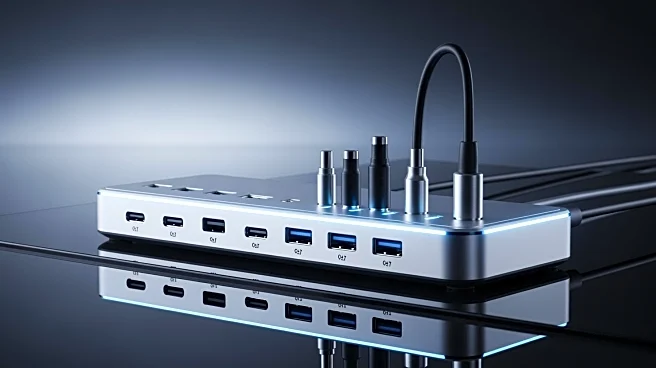Rapid Read • 8 min read
AI-based home security systems are increasingly offering advanced features without subscription fees. Devices such as Google Nest, Tapo security cameras, Lorex outdoor cameras, and Eufy video smart locks provide free AI monitoring capabilities. These systems can recognize people, detect packages, and ignore irrelevant movements like animals or vehicles, enhancing home security without additional costs. Google Nest devices, for instance, offer free object recognition and video storage, while Tapo cameras provide person recognition and crying baby detection. Lorex cameras come with microSD cards for immediate video storage and AI detection of human shapes. Eufy's video smart lock combines a smart lock and video doorbell, offering alerts based on detected people, animals, and packages.
AD
The availability of free AI features in home security devices is significant for consumers seeking cost-effective solutions to enhance their home safety. These advancements allow users to monitor their homes more efficiently without incurring ongoing subscription fees, making advanced security accessible to a broader audience. The integration of AI in these devices also represents a shift towards smarter home technology, potentially reducing theft and improving response times to security threats. As more consumers adopt these technologies, the demand for subscription-free security solutions may increase, influencing market trends and encouraging further innovation in the industry.
As AI technology continues to evolve, more home security devices may incorporate advanced features without subscription fees, increasing competition among manufacturers. Companies might focus on enhancing AI capabilities, such as improving facial recognition and conversational video searches, to attract consumers. Additionally, the integration of AI with other smart home devices could lead to more comprehensive security systems, offering seamless connectivity and control. Consumers can expect ongoing updates and improvements in AI-driven security features, potentially leading to more personalized and efficient home monitoring solutions.
The rise of AI in home security raises questions about privacy and data security, as these devices collect and process significant amounts of personal information. Manufacturers must address these concerns by implementing robust data protection measures and transparent privacy policies. Furthermore, the widespread adoption of AI-driven security systems could influence societal norms around surveillance and personal privacy, prompting discussions on ethical use and regulation of such technologies.
AD
More Stories You Might Enjoy










